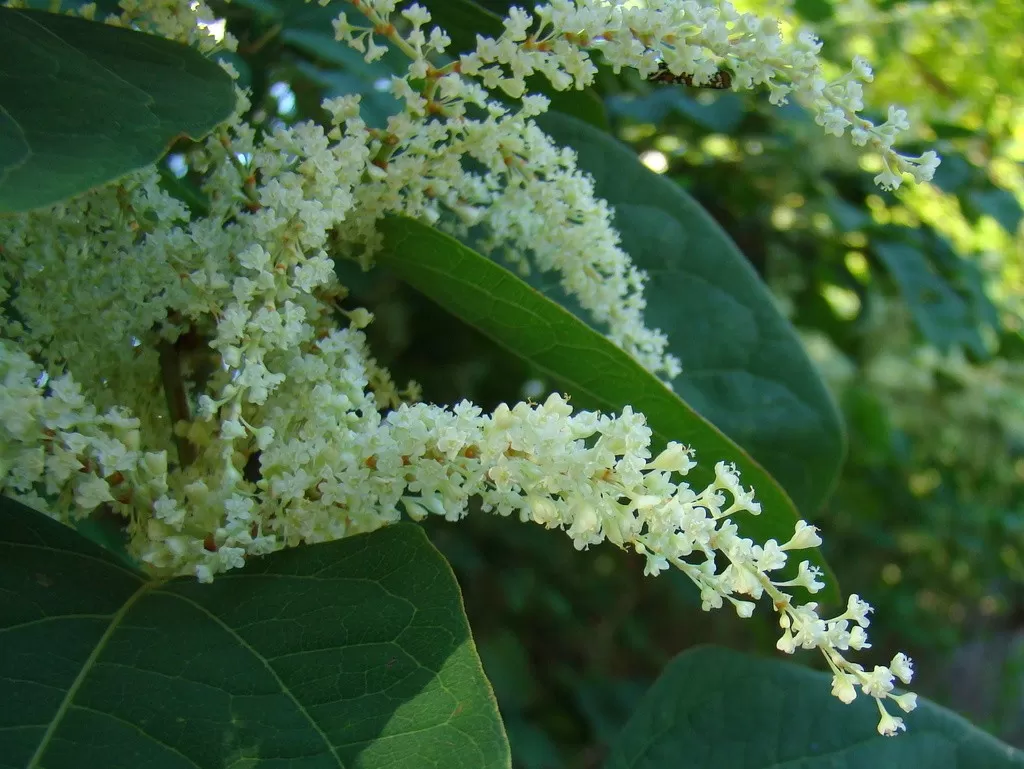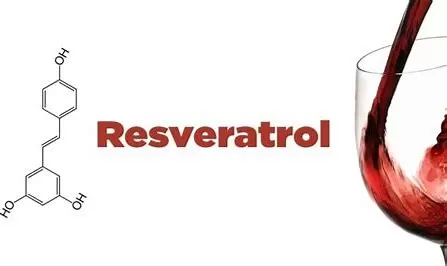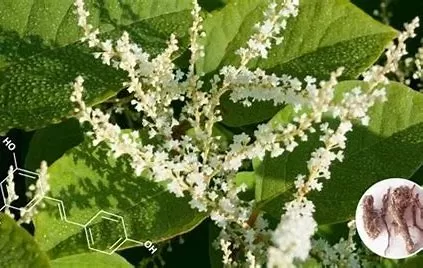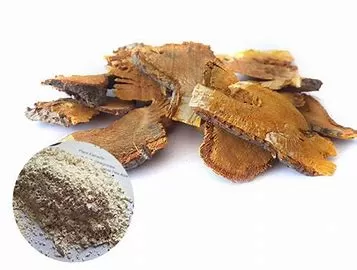- 0086-571-85302990
- sales@greenskybio.com
What Is Resveratrol Extract Good For?
2025-03-18
Resveratrol extract, a natural compound found in certain plants, has garnered significant attention for its myriad health benefits. This polyphenolic compound is primarily derived from the skin of red grapes, berries such as blueberries and cranberries, peanuts, and Japanese knotweed (Polygonum cuspidatum), which is one of the most concentrated sources. Resveratrol is renowned for its potent antioxidant and anti-inflammatory properties, which make it an attractive option for supporting a wide range of physiological functions. From improving cardiovascular health to enhancing cellular longevity and promoting skin health, the applications of Resveratrol extract are sweeping across industries, including medicine, wellness, and cosmetics.
This article provides an in-depth analysis of what Resveratrol extract is good for, highlighting its benefits, mechanisms of action, and why it has become a key ingredient in modern science and health.
Cardiovascular Health
Resveratrol is widely celebrated for its positive impact on cardiovascular health. Through a combination of anti-inflammatory and antioxidant mechanisms, this compound helps protect the heart and circulatory system in the following ways:
1. Reduction in Oxidative Stress
Resveratrol functions as a powerful antioxidant that combats oxidative stress, a major contributor to atherosclerosis and heart disease. By neutralizing free radicals, resveratrol prevents damage to blood vessels, supports their elasticity, and reduces the risk of blockages.
2. Improvement in Cholesterol Levels
Studies suggest that resveratrol may help regulate cholesterol levels by increasing high-density lipoprotein (HDL, known as "good cholesterol") while decreasing low-density lipoprotein (LDL, or "bad cholesterol"). Maintaining a healthy cholesterol balance is crucial for preventing heart disease.
3. Reduction of Blood Pressure
Resveratrol’s ability to relax and dilate blood vessels helps lower blood pressure, making it especially useful for individuals with hypertension. By improving circulation, resveratrol reduces strain on the cardiovascular system and decreases the likelihood of heart attack or stroke.
4. Preventing Blood Clots
Resveratrol exhibits anti-platelet aggregation activity, which helps prevent the formation of dangerous blood clots. As a natural blood-thinning agent, it aids in maintaining proper blood flow and reducing the risk of thrombosis.
Aging and Longevity
Research into the anti-aging properties of resveratrol has exploded in recent years, and the compound has been linked to cellular longevity and extended lifespan in certain laboratory settings. Its mechanisms include:
1. SIRT1 Activation
Resveratrol activates sirtuins, particularly the SIRT1 protein, which plays a critical role in cellular repair and longevity. Sirtuins regulate processes such as DNA stability, inflammation control, and metabolism, all of which contribute to slower aging and improved resilience against age-related diseases.
2. Improvement in Mitochondrial Function
Resveratrol boosts the efficiency of mitochondria, the powerhouse of cells, which enhances energy production and reduces cellular damage. This may lead to improved cellular health over time.
3. Promotion of Telomere Stability
Telomeres are protective caps at the ends of chromosomes which degrade as cells divide and age. Resveratrol protects telomeres from shortening, supporting cellular longevity and overall anti-aging benefits.
As a result, resveratrol extract has gained popularity among wellness enthusiasts and researchers exploring methods to enhance healthspan and lifespan.
Anti-Inflammatory Benefits
Chronic inflammation underlies many modern health issues, including autoimmune disorders, joint pain, cardiovascular disease, and neurodegeneration. Resveratrol’s anti-inflammatory properties are among its most studied benefits. It works by:
1. Regulation of Inflammatory Pathways
Resveratrol inhibits the production of pro-inflammatory compounds such as cytokines and interleukins. By reducing systemic inflammation, it helps manage conditions like arthritis and promotes overall health.
2. Alleviation of Inflammatory Diseases
Resveratrol has shown promise in reducing the symptoms of inflammatory diseases such as rheumatoid arthritis, asthma, and inflammatory bowel conditions like Crohn’s disease and ulcerative colitis. By lowering inflammation, it may reduce pain, stiffness, and swelling.
Neuroprotection and Cognitive Health
Resveratrol extract is increasingly recognized for its neuroprotective properties, which support cognitive function and may help prevent neurodegenerative diseases such as Alzheimer’s and Parkinson’s. Its key benefits for brain health include:
1. Boosting Brain Plasticity
Resveratrol has been shown to enhance brain plasticity—the ability of the brain to adapt and form new neural connections. This is vital for learning, memory, and recovery after injury.
2. Reduction in Neuroinflammation
By suppressing inflammation in brain cells, resveratrol can prevent damage to neural pathways, lowering the risk of age-related cognitive decline.
3. Improved Blood Flow to the Brain
Resveratrol improves microcirculatory function, including cerebral blood flow, which supports oxygen delivery and nutrient uptake by brain cells. This is particularly useful in mitigating the effects of stroke and enhancing memory retention.
4. Potential Alzheimer’s Prevention
Resveratrol reduces levels of amyloid-beta plaques and tau protein tangles, hallmarks of Alzheimer’s disease. It may help slow the progression of neurodegenerative diseases or support preventive measures.
Weight Management and Metabolic Health
Resveratrol plays an essential role in improving metabolic health, making it a valuable option for individuals struggling with obesity, diabetes, and metabolic syndrome.
1. Regulation of Insulin Sensitivity
Resveratrol increases insulin sensitivity by improving glucose uptake and reducing insulin resistance. This impacts the management of type 2 diabetes, improving glycemic control and lowering related risks.
2. Fat Metabolism
By promoting lipid metabolism, resveratrol helps reduce fatty buildup in the liver and abdominal area. This is particularly important in combating obesity and non-alcoholic fatty liver disease (NAFLD).
3. Weight Control
Resveratrol activates AMPK (adenosine monophosphate-activated protein kinase), a protein that regulates energy metabolism and fat burning. This activation promotes weight loss and healthier metabolic function.
Skin Health
The skincare industry has embraced resveratrol for its ability to rejuvenate skin and protect it from environmental damage. Resveratrol’s contributions to skin health include:
1. Antioxidant Protection
Resveratrol neutralizes free radicals caused by UV radiation, pollution, and stress, preventing skin damage and premature aging such as wrinkles and fine lines.
2. Improved Hydration and Elasticity
By supporting collagen synthesis, resveratrol improves the skin’s texture, elasticity, and hydration, making it a key ingredient in anti-aging creams and serums.
3. Reduction of Skin Inflammation
Resveratrol reduces skin redness, irritation, and swelling, making it suitable for treating sensitive and acne-prone skin.
4. Skin Cancer Prevention
Some research suggests that resveratrol may have anti-carcinogenic properties that help reduce the risk of UV-induced skin cancer.
Anti-Cancer Properties
Emerging research highlights resveratrol’s potential anti-cancer properties. Its benefits include:
1. Reduction in Cancer Cell Proliferation
Resveratrol inhibits cellular pathways that promote uncontrolled growth in cancer cells, helping to slow tumor progression.
2. Induction of Apoptosis
Resveratrol promotes programmed cell death (apoptosis) in cancer cells, preventing them from spreading or forming new metastases.
3. Reduction of Inflammation and Oxidative Stress
By reducing inflammation and combating oxidative stress, resveratrol creates an environment less conducive to cancer development.
While its role in cancer prevention and treatment requires further research, resveratrol shows promise as part of complementary therapeutic approaches.
Immune System Support
Resveratrol extract enhances the body’s immune defenses by regulating the activity of immune cells and reducing inflammation. This leads to better resilience against infections, autoimmune disorders, and chronic illnesses.
Safety and Considerations
Resveratrol extract is generally well-tolerated, but a few considerations should be noted:
1. Drug Interactions
Resveratrol may interact with blood thinners, anti-inflammatory medications, or certain cancer treatments. Consult a healthcare provider before using it alongside prescription medications.
2. Pregnancy and Breastfeeding
While research is ongoing, pregnant and breastfeeding women should avoid resveratrol unless directed by a healthcare professional to ensure safety.
3. Avoid Excessive Dosage
High doses of resveratrol could lead to mild side effects such as gastrointestinal discomfort, headaches, or allergic reactions.
Conclusion
Resveratrol extract is a powerful natural compound with an array of health benefits. From its ability to improve cardiovascular health, promote aging gracefully, and protect brain function to its applications in metabolic health, skin care, and disease prevention, resveratrol has captured the attention of scientists, medical professionals, and wellness enthusiasts alike. Its antioxidant and anti-inflammatory effects make it a versatile resource that addresses both preventative and therapeutic needs across multiple areas of health. As research continues to explore its full potential, resveratrol remains a valuable supplement for optimizing physical and mental well-being. However, it must be used responsibly under guidance from healthcare providers to ensure safe and effective results.
-
Is resveratrol safe for the liver?
2025-03-18
-
Does Coffee Contain Resveratrol?
2025-03-18
-
What fruit is highest in resveratrol?
2025-03-18
-
Is resveratrol safe for kidneys?
2025-03-18















